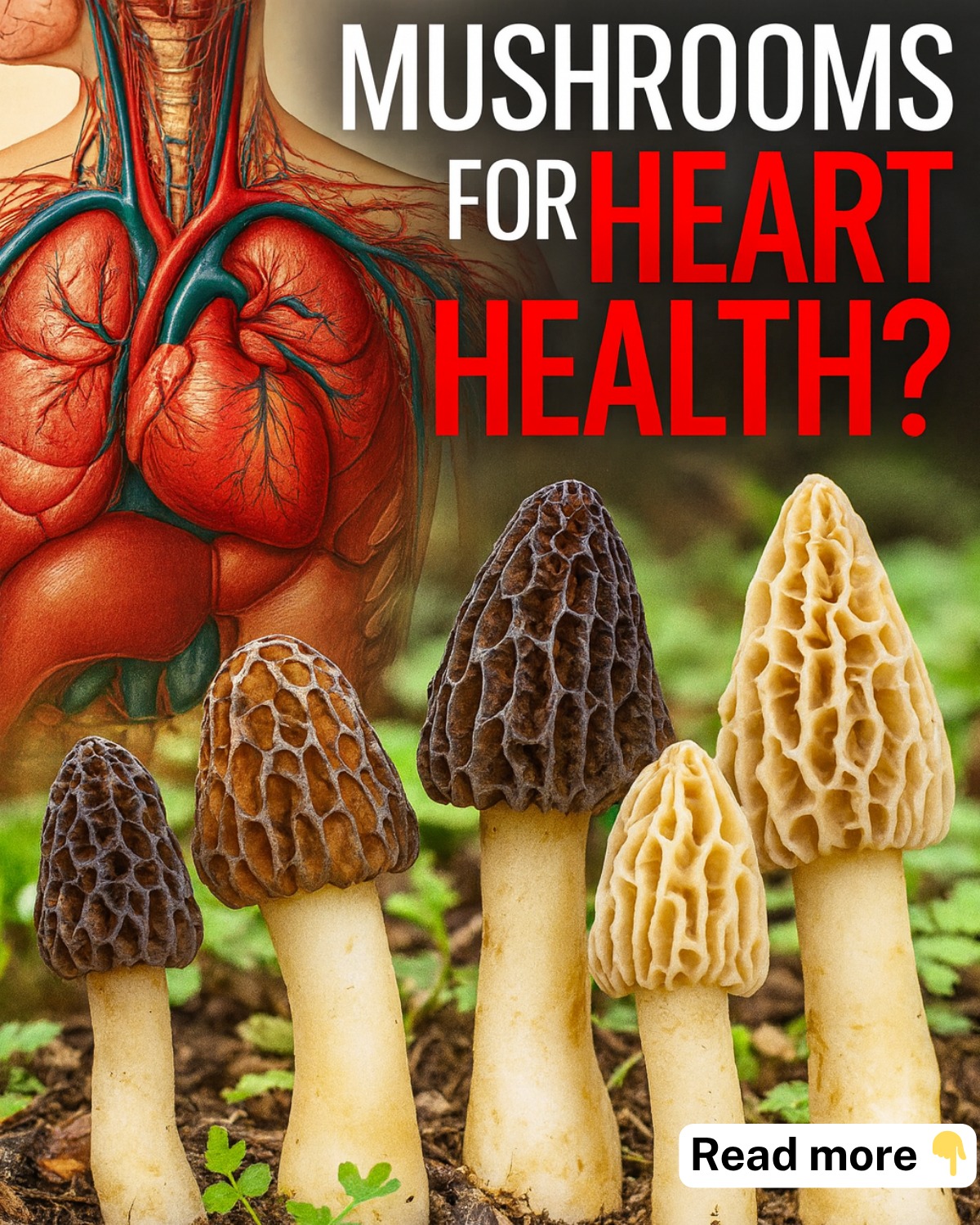Morel mushrooms, with their unique honeycomb caps and earthy flavor, are a gourmet delicacy that can cost over $500 per kilogram when dried, yet their season is just beginning, making now the perfect time to explore their value. Beyond their high price tag, morels are packed with nutrients that may support your health, from boosting immunity to promoting heart health. For health-conscious Americans, these wild-harvested treasures offer a blend of culinary delight and potential wellness benefits. Let’s uncover the science-backed morel mushroom health benefits, how to enjoy them safely, and why they’re worth considering for your diet.Buy vitamins and supplements
Why Are Morel Mushrooms So Special?
Morel mushrooms (Morchella species) are prized for their nutty, earthy taste and distinctive appearance, growing wild in spring across forests in the U.S. and beyond. According to WebMD, morels are low in calories (about 20 per cap) and rich in vitamin D, iron, and antioxidants, making them a nutrient-dense addition to a healthy diet. Their high cost—dried morels can fetch $360–$500 per kilogram due to their short season and labor-intensive foraging, per South China Morning Post—reflects their rarity and culinary demand. A 2020 study in Nutrients highlights their anti-inflammatory and antioxidant properties, which may support overall wellness. This unique combination of flavor and nutrition makes morels a superfood worth exploring.
Boosting Immunity with Morel Mushrooms
Morels are a good source of vitamin D and antioxidants, which can support your immune system. A 2021 Journal of Fungi study suggests that mushrooms, including morels, contain bioactive compounds that may enhance immune function by reducing oxidative stress. The CDC notes that vitamin D is crucial for immune cell activity, helping your body fend off minor illnesses. Adding morels to your diet during their spring season could give your immunity a gentle boost.
To incorporate morels for immunity:
Add to soups: Toss rehydrated dried morels into a vegetable broth for a nutrient-packed meal.
Pair with vitamin C: Serve with citrus-dressed salads to enhance immune support.
Eat regularly: Include small amounts 1–2 times weekly during the season.
Choose quality: Source from reputable vendors to ensure safety and freshness.
Over a few weeks, you might feel more resilient, especially when paired with a balanced diet. Always consult your doctor if you’re managing immune-related conditions.
Supporting Heart Health
Morel mushrooms may contribute to heart health, a key concern for Americans, as heart disease remains the leading cause of death, per the CDC. Their fiber content helps lower cholesterol, while potassium supports healthy blood pressure, according to Harvard Health. A 2019 Mycology study found that morels’ antioxidants may reduce inflammation, a risk factor for heart disease. While not a replacement for medical care, morels can be part of a heart-friendly diet.Buy vitamins and supplements
Ways to use morels for heart health:
Sauté lightly: Cook in olive oil to keep saturated fats low.
Replace processed foods: Swap creamy sauces for morel-based dishes.
Limit portions: Use ¼–½ cup per serving to manage calories.
Combine with greens: Pair with spinach or kale for extra heart benefits.
Incorporating morels 2–3 times weekly during their season may support cardiovascular wellness. Check with your doctor if you have heart conditions or take medications.Buy vitamins and supplements
Promoting Digestive Health
The fiber in morel mushrooms supports healthy digestion by promoting regular bowel movements and feeding beneficial gut bacteria. A 2020 Journal of Functional Foods study notes that mushrooms’ dietary fiber and polysaccharides act as prebiotics, which may improve gut health. According to the Mayo Clinic, a healthy gut can reduce bloating and enhance nutrient absorption, benefiting overall wellness.
Buy vitamins and supplements
To use morels for digestion:

